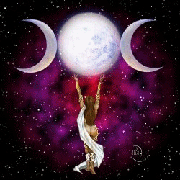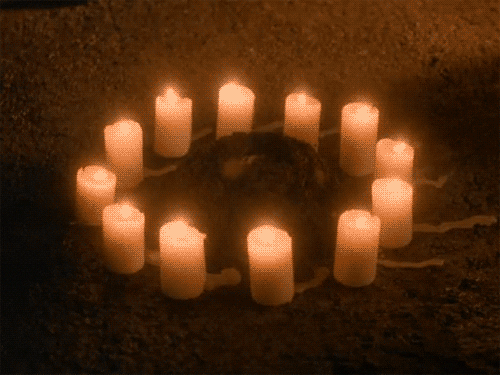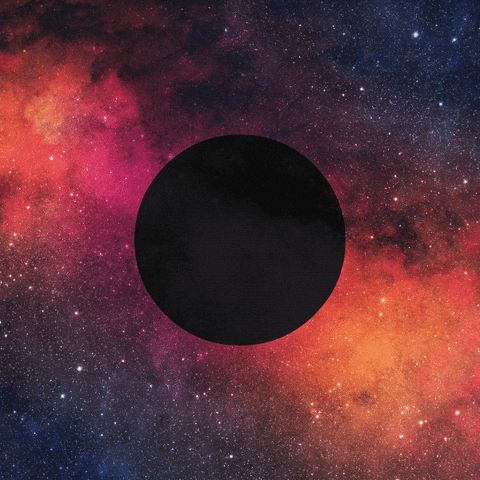Hi, my loves and welcome to WiccaNow. Recently I’ve been pretty eclectic in what I’ve been posting about, as you can see from my most recent posts ranging from a healing spell, to common witch supplies, to a post about witch wands along with my favourite recipe for banishing salt. I’m going to continue jumping around today because I want to talk about something we get a lot of questions about, namely what the difference between Wicca and Witchcraft actually is.
This is a great question, because the two are often interchanged and used to mean the same thing when in reality they are totally separate things which sometimes intersect. In a nutshell, not all Witches are Wiccans, and not all Wiccans are Witches. While this seems like a bit of a silly way to put it, it, in fact, hits the nail on the head and describes the relationship of the two perfectly.
In order to break down what the difference between Wicca and Witchcraft actually is, I want to answer a few basic questions about both Wicca and Witchcraft first.

Table of Contents
What are Wiccan Beliefs?
Wicca is a relatively new religion which was thought to have been founded by Gerald Gardner in the 1950s. It’s a duotheistic practice that believes in the divine balance of a male and female deity. Wicca is nature-based, with a strong focus on living harmoniously with the seasons and following the wheel of the year. The 8 Sabbats are celebrated and the main tenet of Wiccan religion is the Wiccan Rede “An ye harm none, do what ye will” and the Threefold Law. The main intention of Wicca is to worship the divine, connect with one’s own spirituality and to observe, relate and respect nature.
Wicca became an officially recognized religion in 1986 after the landmark case Dettmer v. Landon.
Read a more in-depth view of Wicca in this blog post Amythest wrote about what Wiccan beliefs actually are.

Who is the Wiccan God?
There is no set Wiccan God or Goddess, however, the most commonly worshipped deities are the Triple Goddess who is seen to encompass all Goddesses and the Horned God who encompasses all Gods.

Because there are no set gods, some practitioners will choose to worship a different god or goddess for different seasons, sabbats or intentions. For example, it’s common to worship the Goddess Brigid for Imbolc. Wiccans may solely worship the Triple Goddess and Horned God or “The Divine One” (the spirit of the universe, both male and female) or they might worship one of the older gods, such as Odin and Frigg or Isis and Osiris.
Basically, if you are Wiccan, you can choose to worship whoever, whenever, however, you like because at the end of the day by worshipping one, you are worshipping them all as everything is connected. Read more about the Wiccan Deities here.
Generally, if you are Wiccan, including a deity in your practice is a must and it would be relatively uncommon to find a practicing Wiccan who doesn’t have a deity that they acknowledge.
What is the Real Meaning of Witchcraft?
Witchcraft is a practice, rather than a religion. Witches believe in harnessing their own power in order to manifest the things that they want in life. While a witch might call on a deity in their practice, they don’t have to. A witch can be completely non-religious or may follow some other religion while also practising witchcraft. There are some Christian who call themselves witches, although given how awful the bible is in regards to witches, I always find this a little difficult to digest (but that’s a post for another day).

What is a Male Witch Called?
I just want to address this briefly because it comes up a lot. A male witch is also referred to as a witch. So when I mention witches in any of my posts, I don’t want my male counterparts thinking that I’m excluding them!
Where the word “witch” actually comes from is a little unclear but it’s thought to have originated from an Old English word, namely “Wicca” which at that point (in 890AD) referred to a male practising witchcraft. Around 100 years later, the word for a female practitioner was introduced as “wicce”, with the “cc” part of the word pronounced like “tch”.
So, here you can see where the confusion about the difference between Wicca and Witchcraft arises given that the original meaning of “Wicca” is, in fact, a male witch. The reason the two are now different things, is because Gerald Gardener took the original word and assigned it to his newly formed religion, addressing participants as “The Wica”. This name eventually caught on and ended up being the name that people used for the whole religion, rather than just the participants.

What is the Difference Between Wicca and Witchcraft?
Now that I’ve covered the basics of both terms, let’s discuss why the difference between Wicca and witchcraft is so hard to get a handle on and why the lines are so often blurred.
The main difference between Wicca and Witchcraft is the actually intent. The intent of Wicca is it honour nature, the deities and to connect with one’s own spirituality. The intent of Witchcraft is to harness the powers contained within nature and oneself in order to manifest a certain result, whether that be love, success, healing or connection with other beings.
Many witches may feel spiritual, without actually prescribing to a particular religion. They may, in fact, see witchcraft AS their religion although technically it’s not classified as such. Because Wicca is an extremely openminded religion, a lot of practitioners are drawn to the idea of magick and many Wiccans might also be witches.
Many Wiccans choose to practise magick in the form of spells and rituals, meaning that they are witches as well as Wiccans. The important thing to note is that Wiccans can practise their religion without any form of magick or spellwork. Instead they honour the 8 Sabbats and the wheel of the year, pray to a deity and have a huge respect for nature and all living things.

Wicca and Witchcraft are very complementary, given that both have a heavy focus on respecting the powers of nature, however, they are ABSOLUTELY NOT the same thing. As I said earlier, all witches aren’t Wiccan, and all Wiccans aren’t witches. See what I mean when I say that’s the best way to describe it?
A Table of Main Differences Between Wicca and Witchcraft
| Wicca | Witchcraft |
| Nature-based | Doesn’t have to be nature-based (however it often is) |
| Recognised religion | Not a recognised religion |
| Doesn’t practise magick | Practises magick |
| Worships a Deity | Doesn’t have to worship a deity but can if they want to |
| Follows central tenets such as the Wiccan Rede | Doesn’t have any framework that they have to work within |
| Believes in re-incarnation | Doesn’t have a strict opinion on the matter |
| Believes in the Threefold Law | Doesn’t have to believe in the Threefold Law |
| Will never practise harmful magick | Might use black magick (although hopefully not). |
| Never practices another religion | Might practice another religion as well as witchcraft |
| Has an altar | Might not have an altar |

So, my fellow lovers of learning, I hope this answers the question of “What the difference between Wicca and Witchcraft actually is” for you! I know they seem incredibly intertwined, and through recent portrayal in the media and due to a huge increase in interest around the world they are starting to mean the same thing. This doesn’t mean that the difference shouldn’t be noted and acknowledged though.
As always, stay safe, stay healthy and I’m sending you all happiness vibrations.
Until next time,
Blessed Be,
Amaria xx
